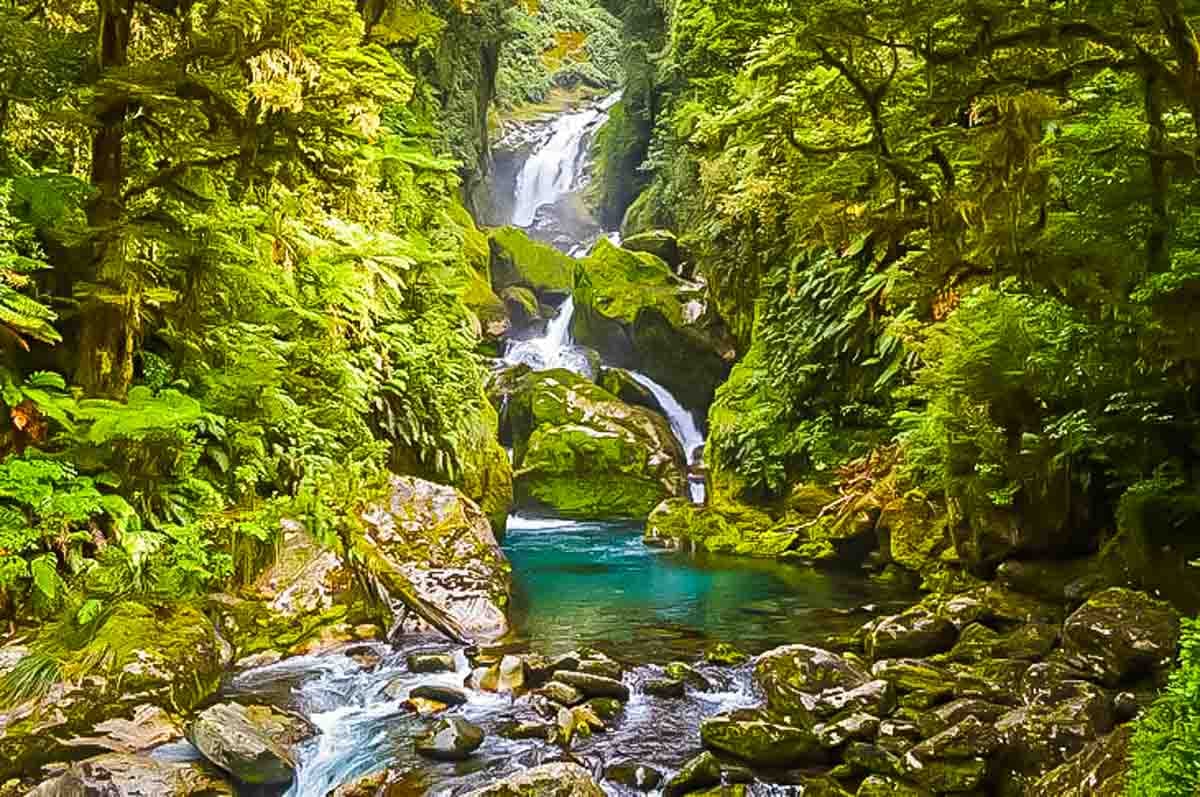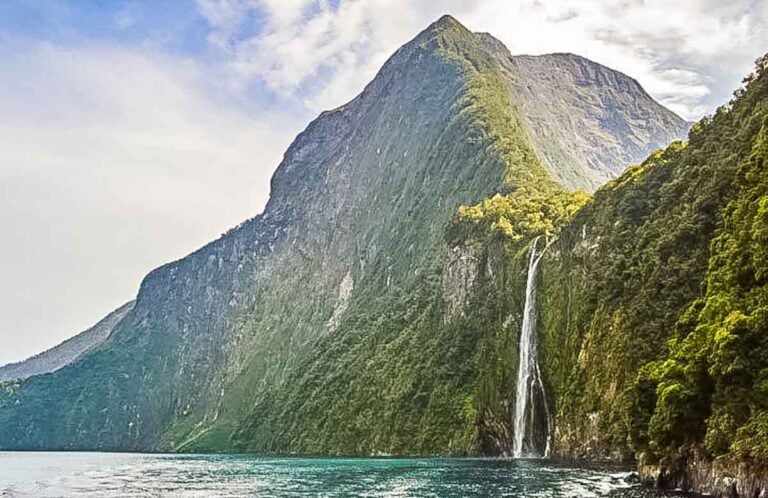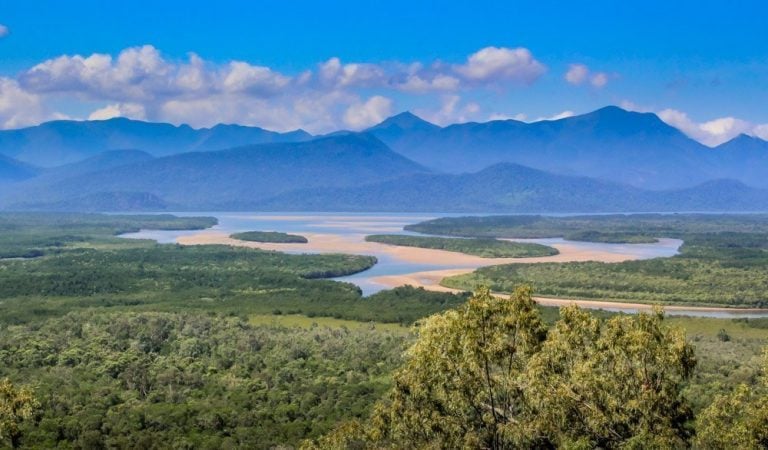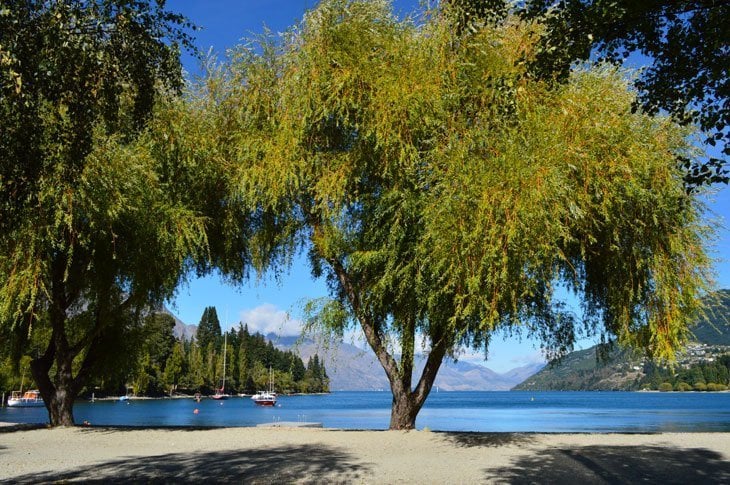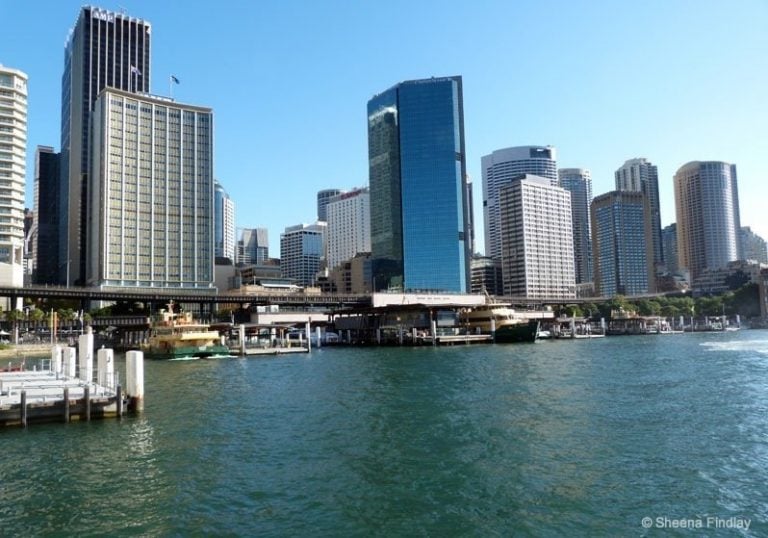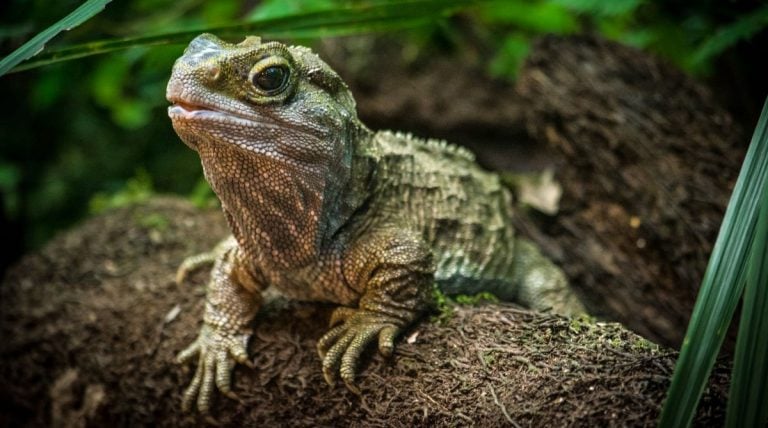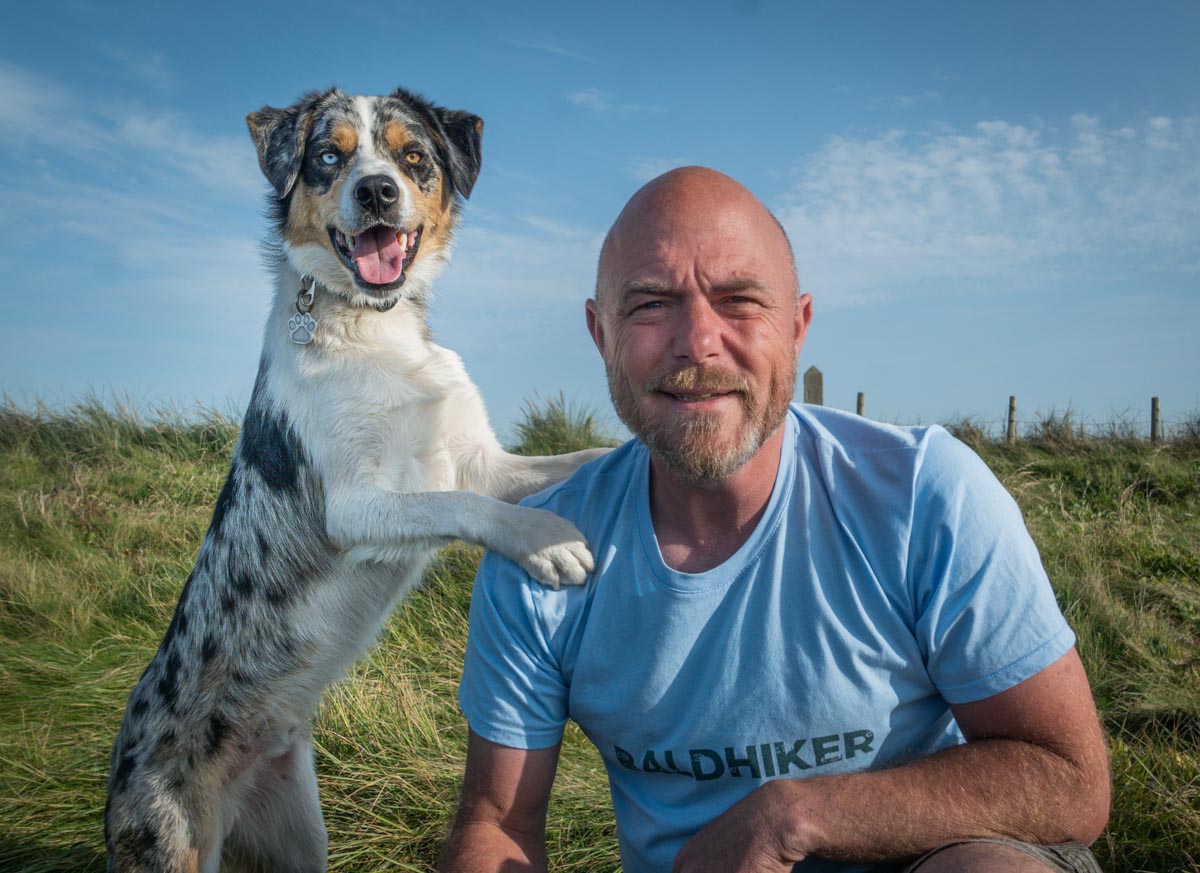I had landed in New Zealand and the Milford Track was calling me. 53.5 kilometres (33.2 miles) of the most splendid glacial carved valleys, forests, alpine passes and waterfalls you can ever imagine seeing. I was going to head on this 4 day/3 night adventure I had always wanted to do.
This iconic hiking trail, known to many as the “Finest Walk in the World,” passes through the heart of Fiordland National Park, New Zealand. As you traverse this extraordinary terrain, you’ll encounter serene lakes, dense forests, and towering peaks that seem to touch the sky. This walk certainly made memories and presented views I shall never forget.
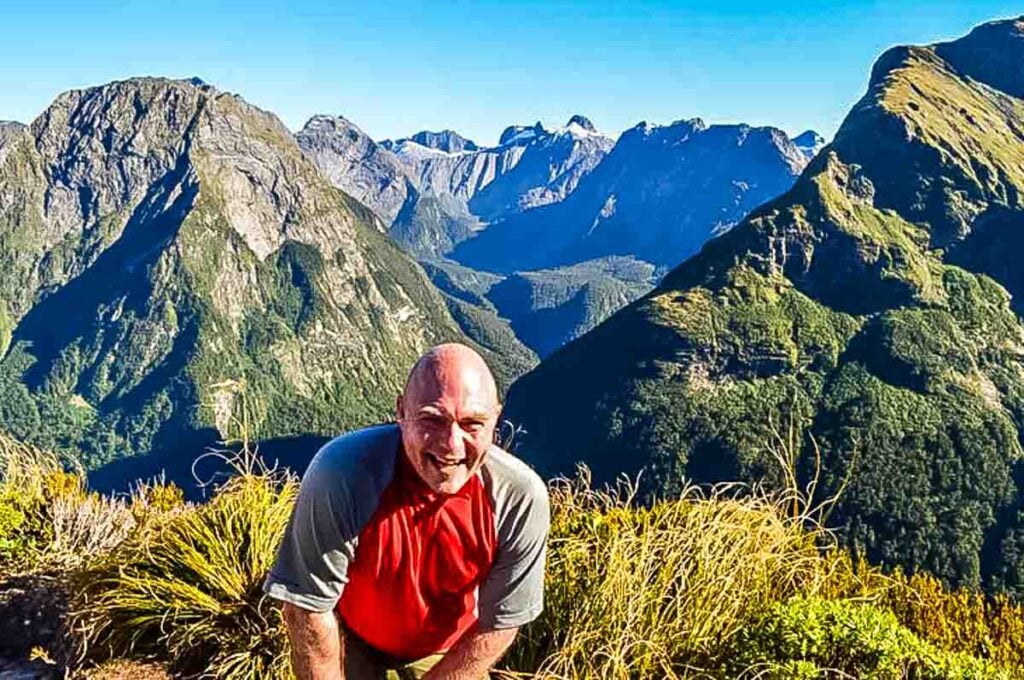
To top it all off, your reward for completing this amazing trek is finishing at the awe inspiring Milford Sound.
Whether you’re an experienced hiker or someone seeking to challenge yourself, the Milford Track offers an unforgettable journey that will leave you in awe of the natural wonders that surround you. Lace up your boots, pack your essentials, and let the Milford Track become your gateway to a wilderness experience you’ll never forget.
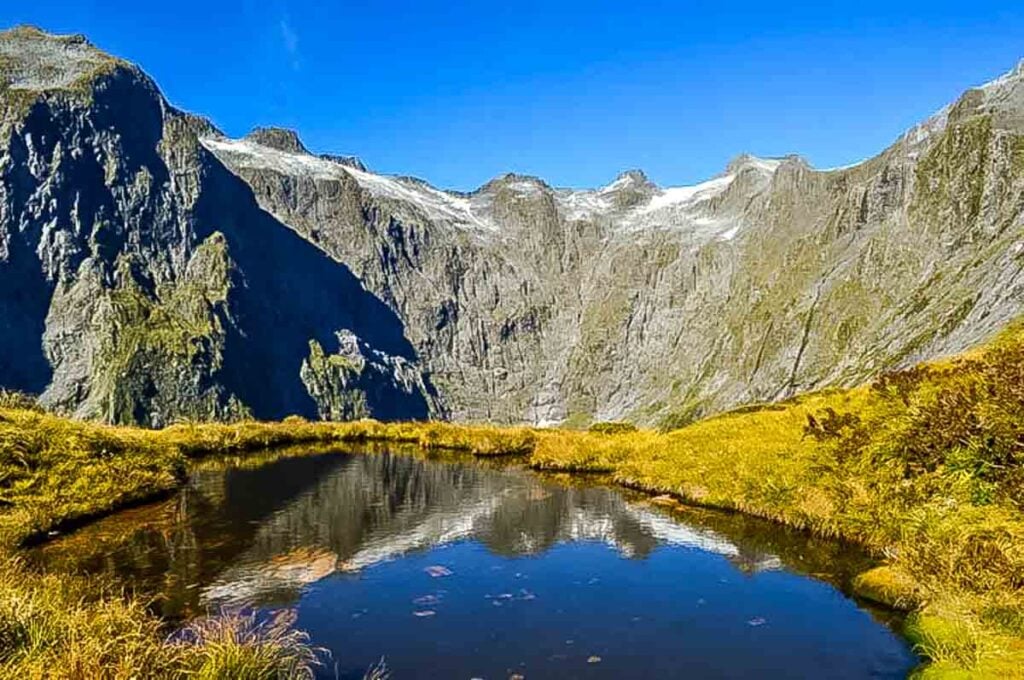
History and significance of the Milford Track
The Milford Track has a rich history that dates back to the indigenous Maori people, who used the trail as a trade route and for gathering valuable resources. In the late 19th century, the track gained popularity among European explorers and became a sought-after destination for intrepid adventurers.
Today, the Milford Track holds immense significance as one of New Zealand’s most iconic walks. Its pristine beauty and unique ecological features have earned it a place on the Te Wahipounamu World Heritage site list, recognizing its outstanding universal value.
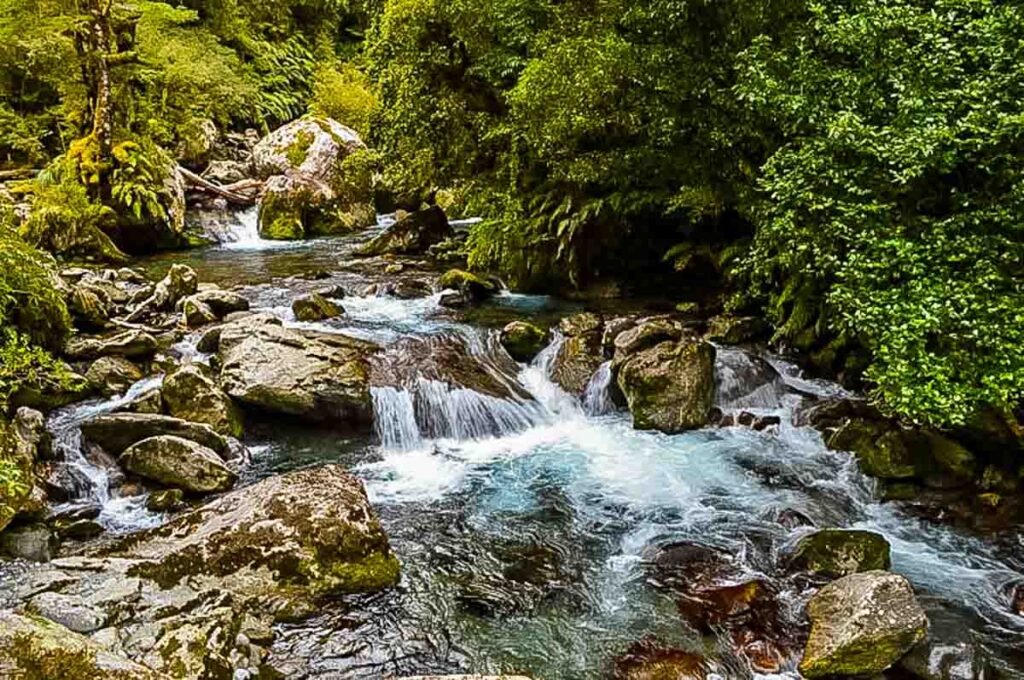
Milford Track itinerary and highlights
The Milford Track is completed over 4 days and 3 nights, allowing hikers to immerse themselves fully in the beauty of the landscape. By making sure that all walkers go in one direction over a set number of days helps with control the conservation of the trail and the area.
The track begins at Glade Wharf, near Lake Te Anau, and winds its way through a variety of terrains, each more awe-inspiring than the last.
Day 1 – The Lake and into the forest
The first day of the journey takes you through lush beech forests and alongside the Clinton River. The highlight of this section is the Clinton Hut, where you can rest and take in the tranquil surroundings before continuing your adventure.
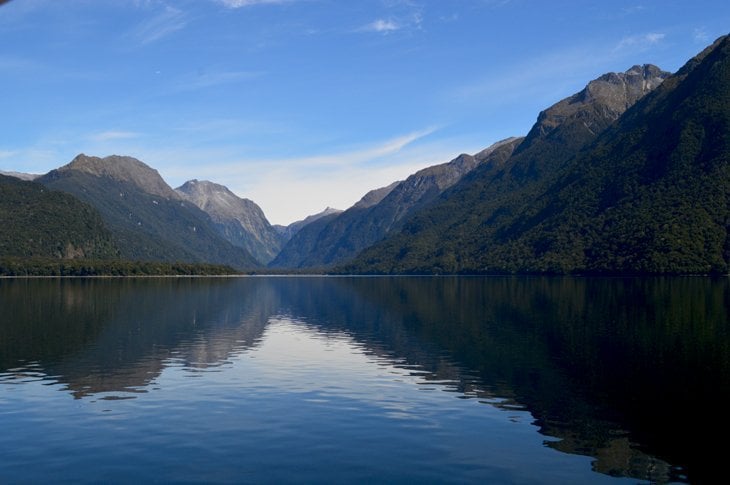
Even before you start the adventure, the one hour boat ride along Lake Te Anau to the trailhead is a spectacular opening prior to your boots hitting the ground.
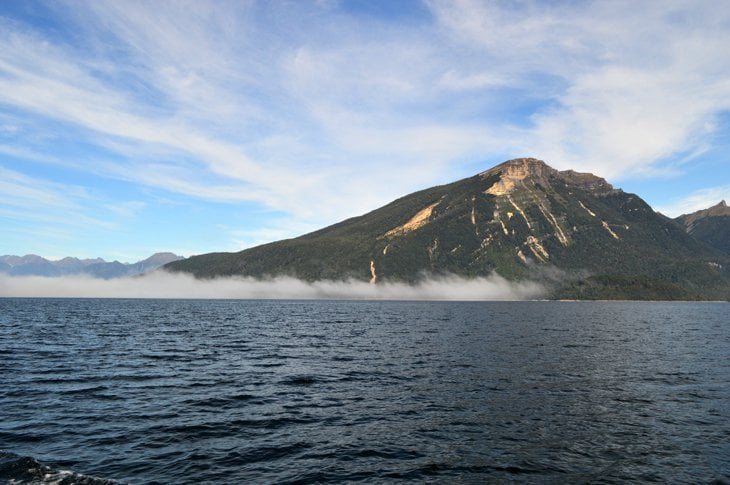
On day one you walk less than 3 miles – an easy start. The wow factor has begun though, miles from built up civilisation.
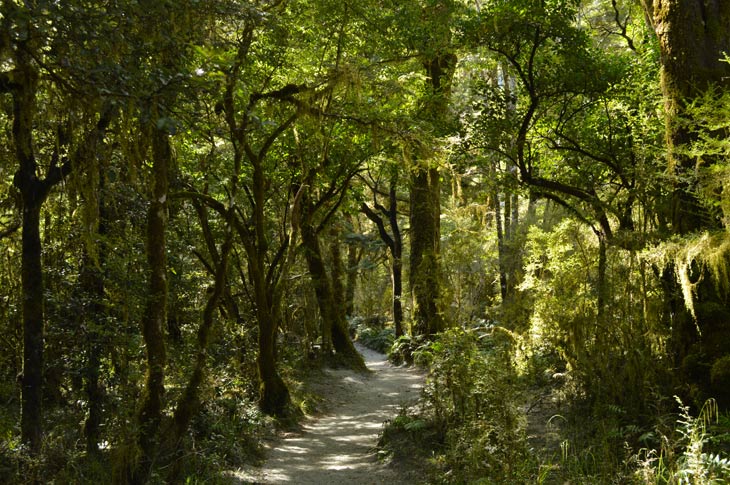
The fact that you have lots of time before you reach the first hut, The Clinton Huts, means that you can immediately take your time and truly soak in these surroundings. The water so clear, the forest so green and the only noise you hear is the birds in the trees and the river rushing by.
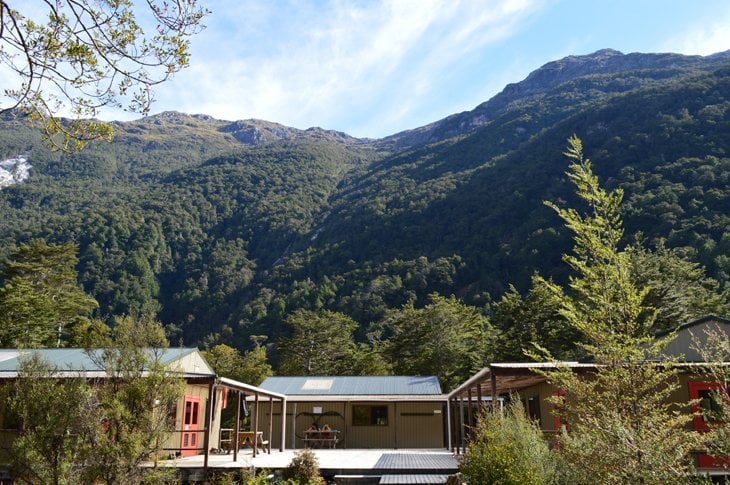
Day 2 – Up the Clinton River
Day 2 is a 10 miles (16 km) walk up the Clinton River. Through and beneath a Beech Forest then out into the open as you very gradually get higher. Also it felt like the day for so many birds.
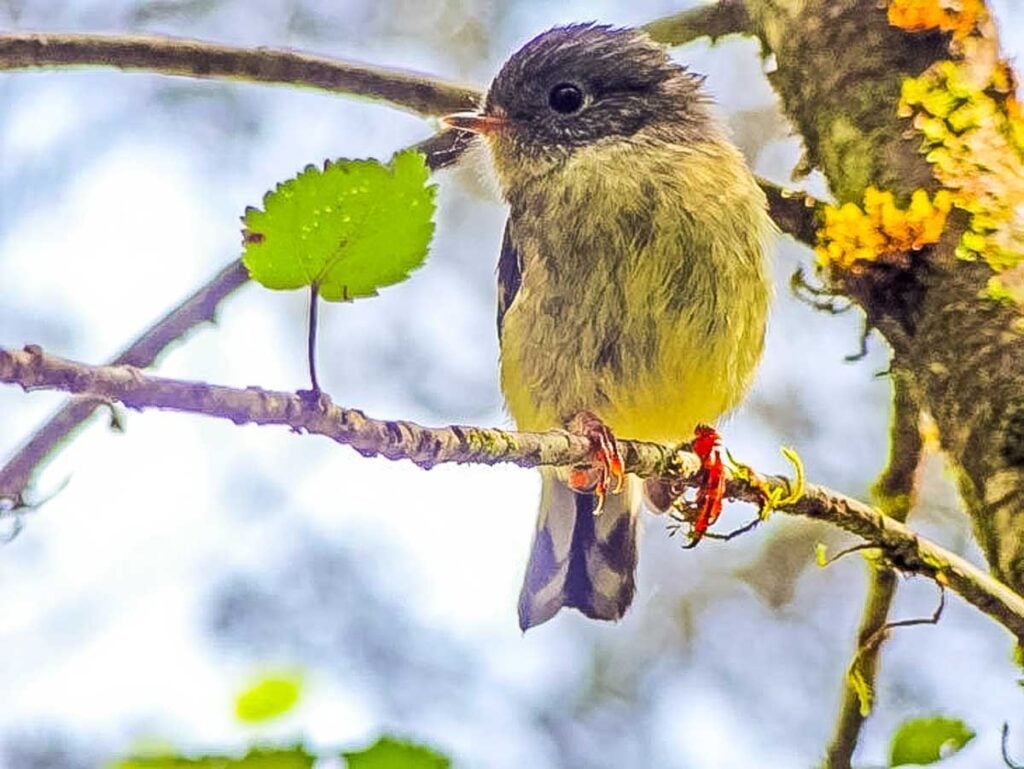
I was here, as you can see during a dry season. I kept imagining what it would be like after rain when the river is raging by more furiously. Water was cascading down the mountain sides all around.
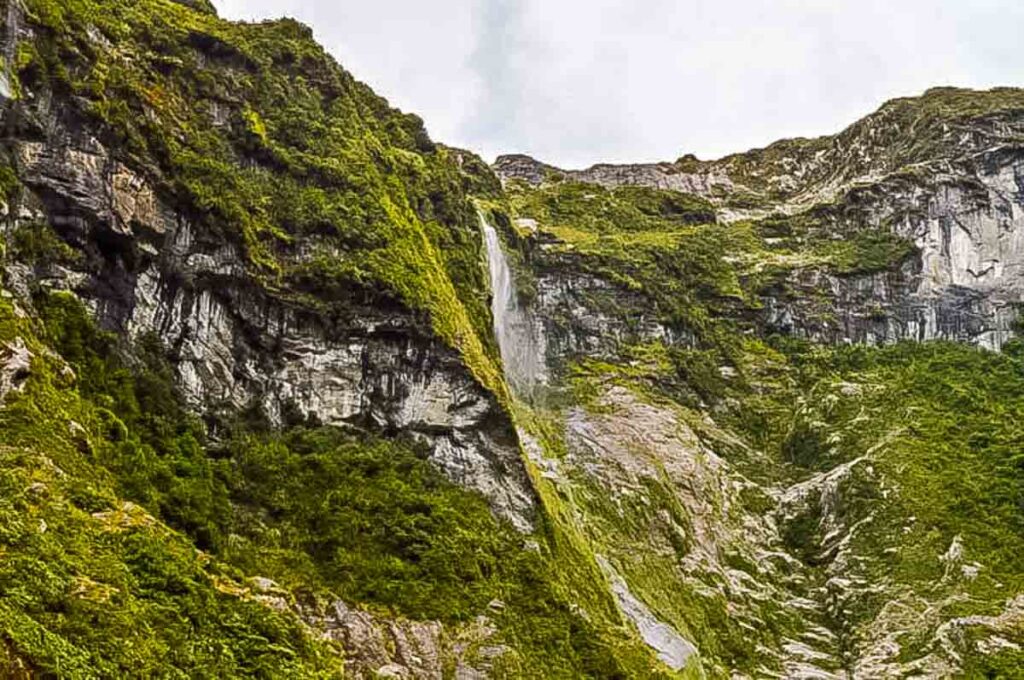
If you are a wildlife lover then this day would have been for you, as it is when I saw so many flowers and unique birds, especially the little Tomtits.
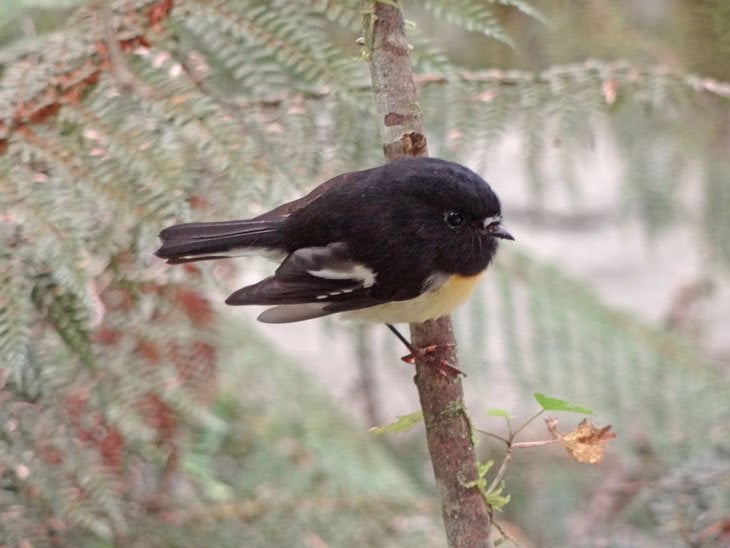
The rangers do so much work in this area because this landscape is home to a stunning variety of avian species, many unique to New Zealand.
Before foreigners came to this land, the birds had no mammalian predators, so birds such as the Kiwi evolved to prowl the forest floor without flight; no need for wings. Small wrens and tits sang and swooped among the green canopies in great numbers too.
Then man came and brought with them the inevitable rats and mice, and then thought it would be a great idea to let loose stoats and possums to control the rats and mice.
As you can imagine, with all those mammals multiplying freely, the birds and the eggs began to get wiped out.
The Department of Conservation (DOC) has created a huge pest control system and traps that now rid these mammals with resounding results. The rangers are noticing the numbers of small birds increasing by quite a lot. Long may this dedicated work continue!
During day 2 you get a glimpse of what lay ahead next: the first sighting of the saddle between the mountain tops known as Mackinnon Pass.
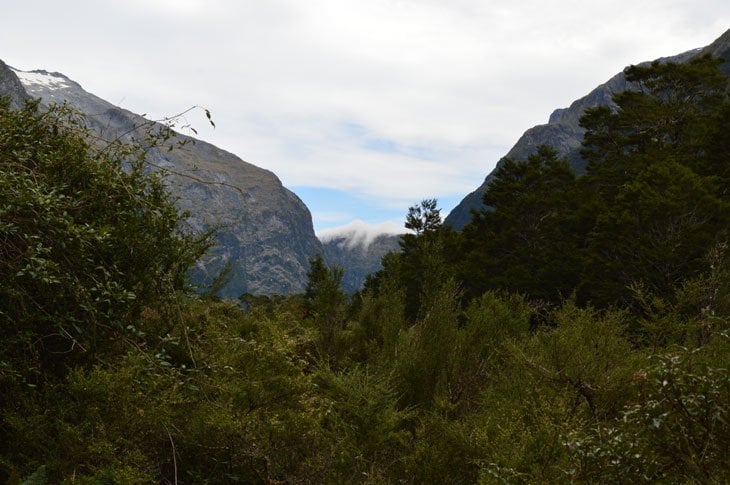
Time to freshen up and relax at the Mintaro Huts.
Day 3 – Up and over the Mackinnon Pass
The 3rd day is the hardest and highest day as you’ll encounter the Mackinnon Pass, a challenging yet rewarding part of the track. As you ascend to the pass, be prepared for steep inclines and breathtaking vistas. The panoramic views from the summit make all the effort worthwhile and provide an unparalleled sense of accomplishment.
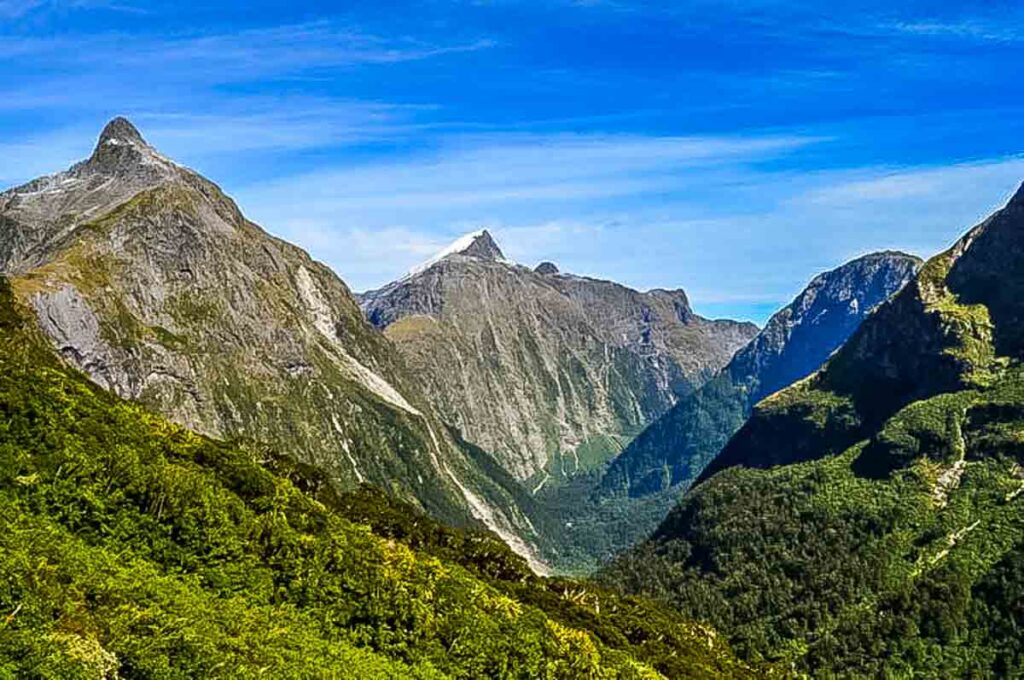
The name of the pass sounds very Scottish doesn’t it? Well it is named after the person who discovered it, Quintin Mackinnon, born of Argyllshire, Scotland ,and who emigrated to New Zealand in the 1870s as an explorer.
He was tasked with finding a route for tourists from Lake Te Anau to Milford Sound. After months thrashing through forests and facing extremes he found the pass over and down to join the Arthur Valley that we discover more of on day 4.
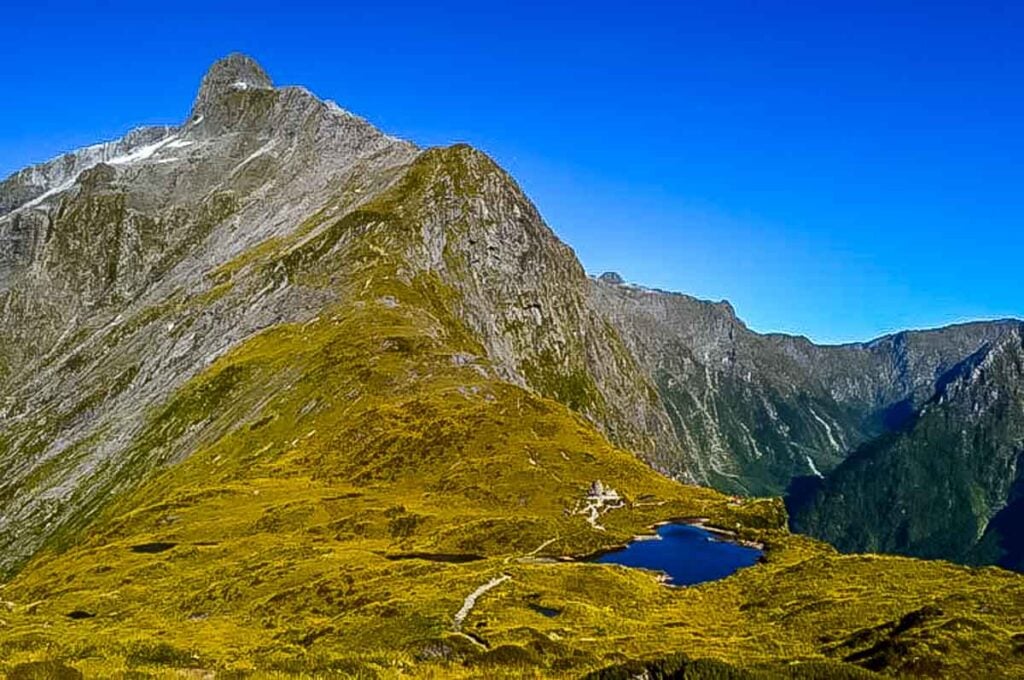
It was Quintin who was responsible for making the Milford Track path accessible for tourists and he was the original guide on this great walk.
With a climb and big descent today, what was needed was a good, fresh early start after a delicious breakfast. Up and up the zig zags we go! Nothing to be daunted by at all, just a gradual increase in elevation.
After the first half a dozen zig zags, you suddenly step out above the forest tree tops and, believe me, you will be distracted by the views in front, to the side and behind you. Take your time, enjoy it; marvel at it.
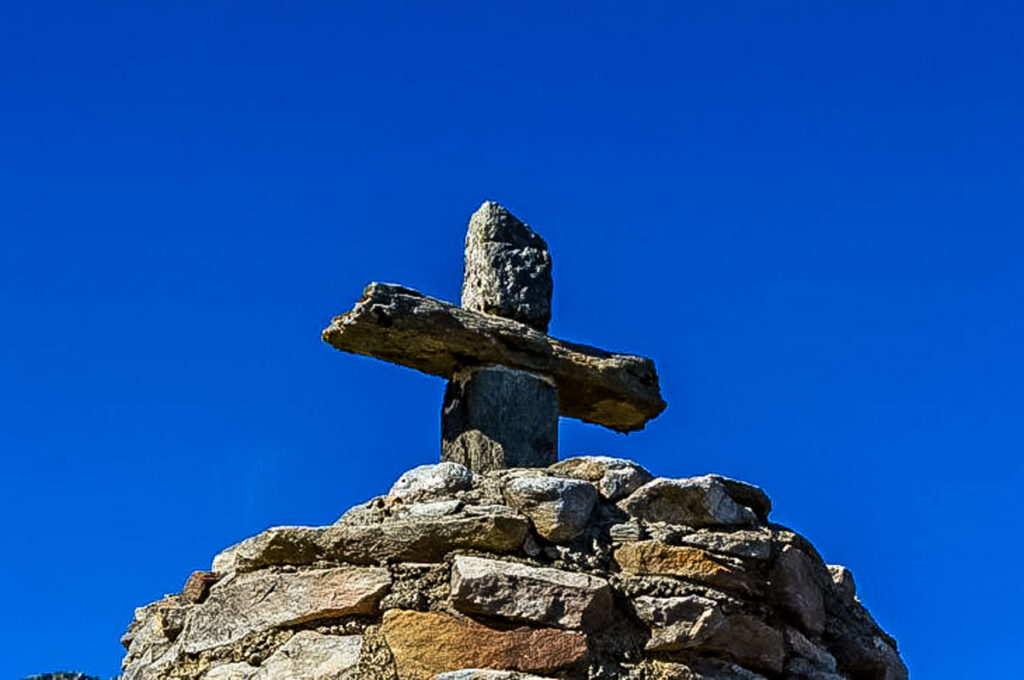
Before long you see the first symbol of the top: a cairn erected in memory of Mackinnon himself. The perfect spot to take the rucksack off, get the camera out and look out in wonder.
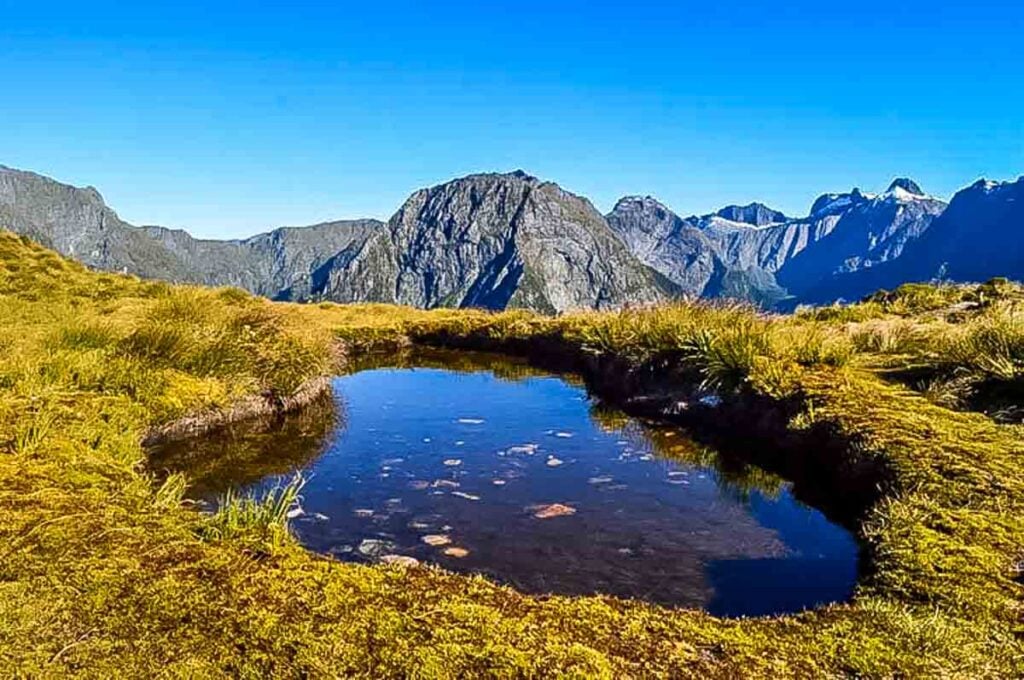
Between here and the hut that sits on the pass summit there is so much to soak in. Looking back down from where you came, the Clinton River winds down the valley with miniature looking trees lining the valley floor. Look closely, and way below you can see the huts you set off from that morning.
Looking the other way are just as many wows if not more. A spectacular New Zealand Alpine panorama stretches out. Snow glistened in the sunlight on the mountain tops whilst deep green valleys snaked up between them. Looking out directly north you can stand or sit on the edge. The drop down is fondly called the ’12 second drop.’ Yes, a straight down drop. It adds to the perspective and magnitude of the place.
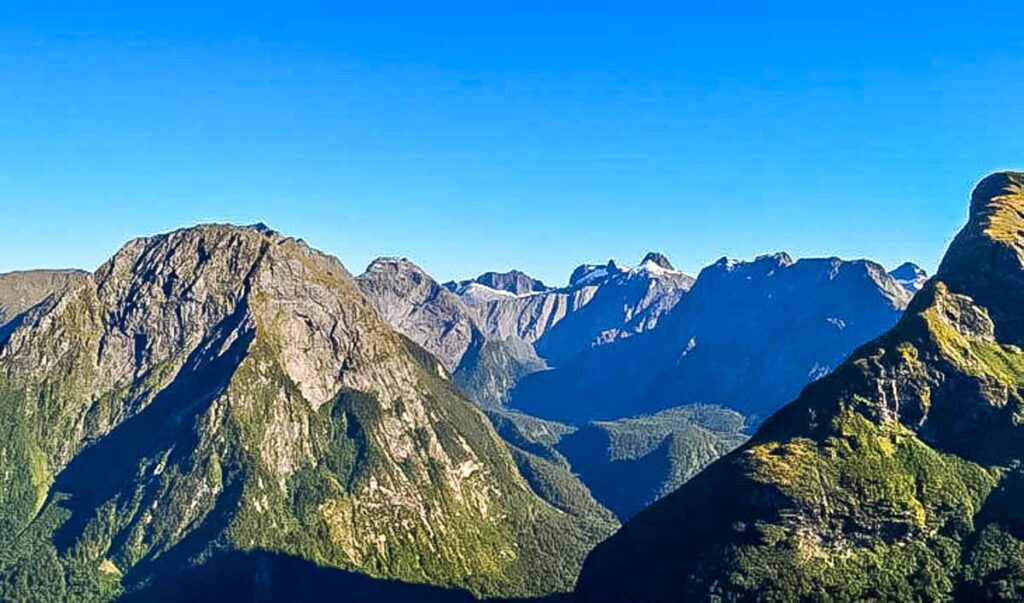
I was so so lucky! Look at the skies, they were so so blue. If you consider that it rains up here on average of over 300 days per year, then with heavy cloud days that does not leave many days for blue skies.
The hut up here too has a quirk you can’t forget in a hurry. One of the best loos with a view in the world. Yes, a toilet is there and as you sit upon it you can look out and take in this view:
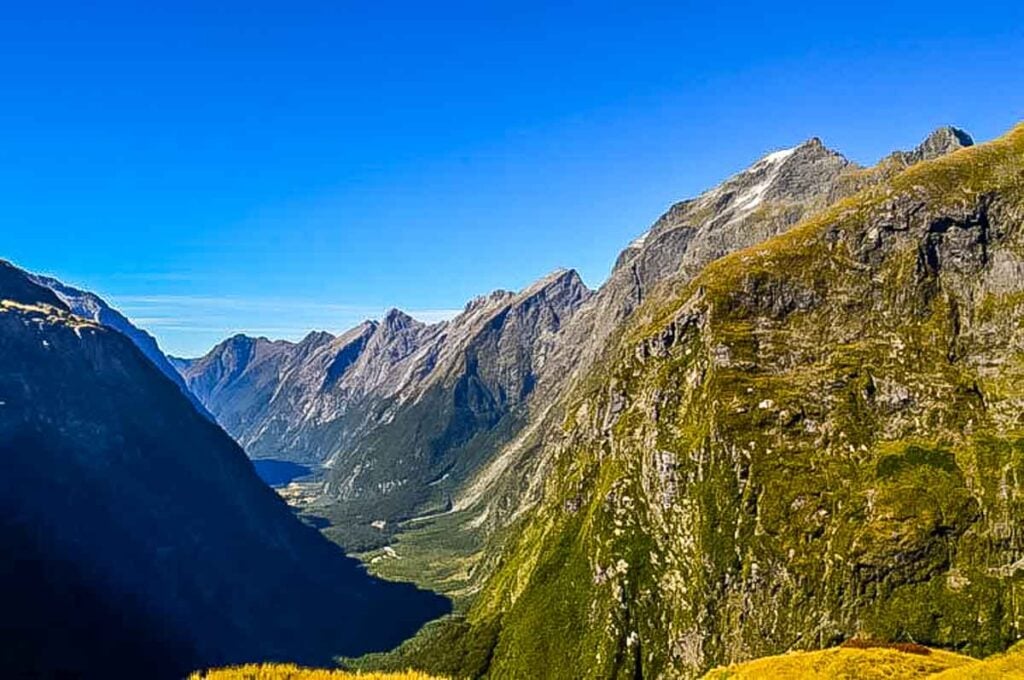
To ascend in the morning there was about a 500m climb. To descend to the other side involves going down about 1000m and not too many miles. Again, enjoy the views around; take your time and the pressure in the knees will soon be forgotten.
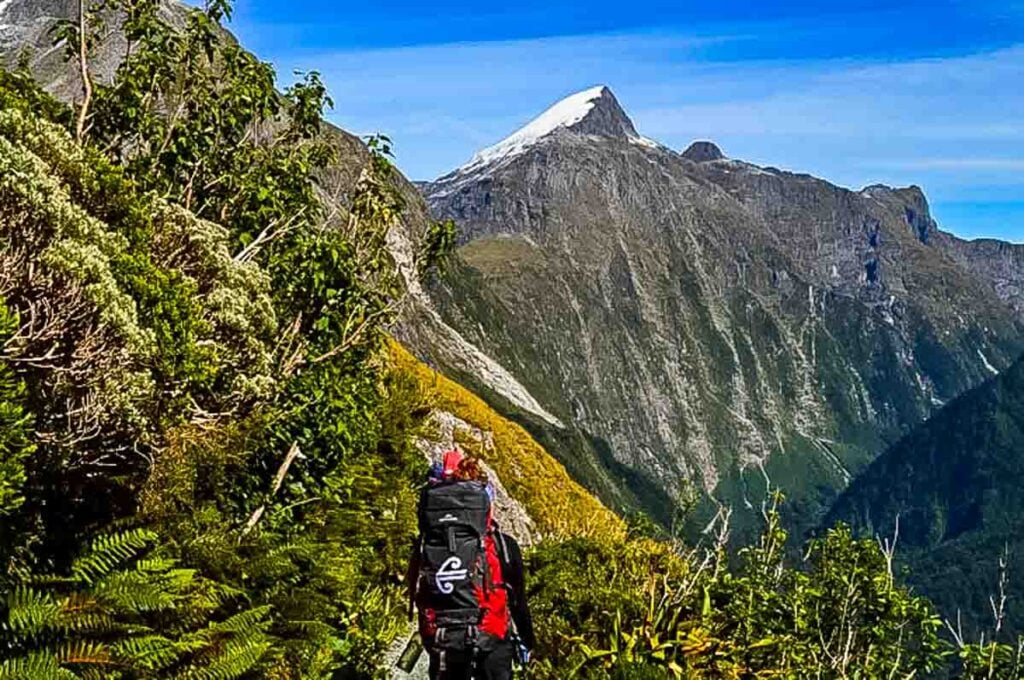
As you descend from Mackinnon Pass, you’ll enter the enchanting Arthur Valley. Here, you’ll witness cascading waterfalls, crystal-clear streams, and the mesmerizing beauty of the Arthur River.
Day 4 – Paradise to the end
The final day of the Milford Track leads you to the majestic Milford Sound, one of New Zealand’s most iconic natural wonders. As you approach the end of your journey, be prepared to be awestruck by the towering cliffs, dramatic fjords, and abundant wildlife that call this place home.
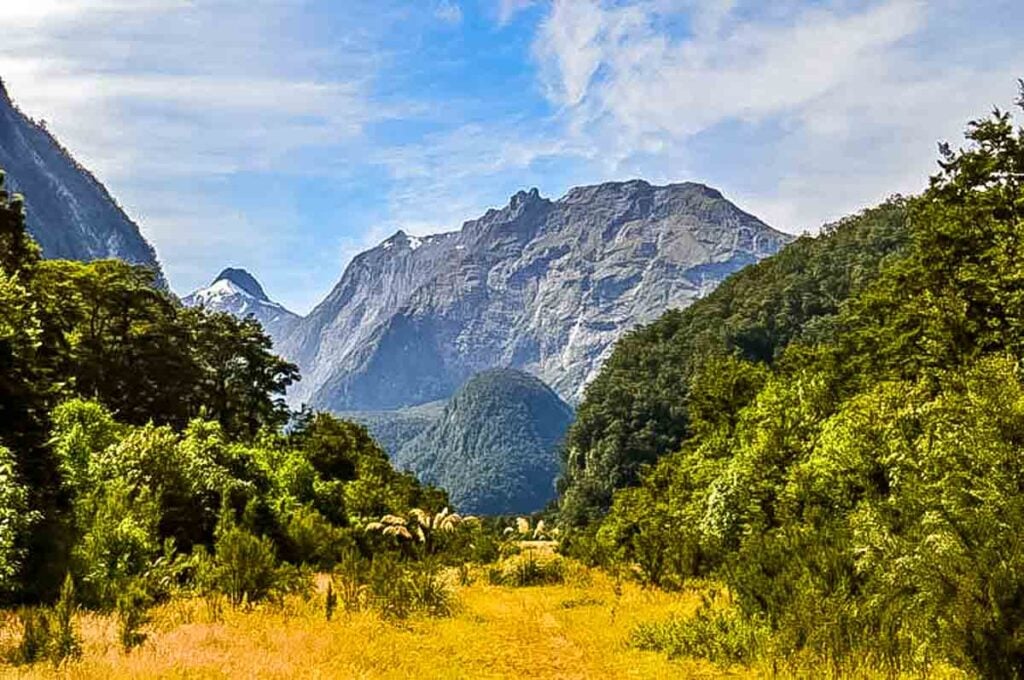
Stepping back into the fairy-tale like scenes within the forest canopy, the path may have been heavily downward but the river beside it is too. Producing some spectacular waterfalls to stop you in your wandering tacks, it is impossible to describe just how clear the water is here. Waters running down magnificent rocks into turquoise pools.
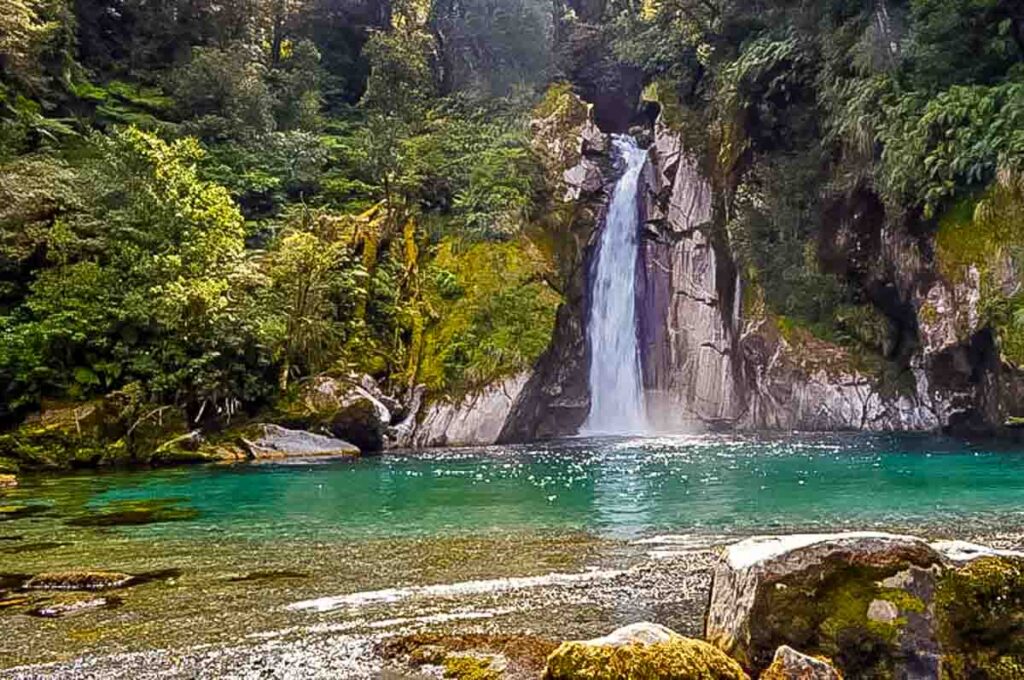
Over this side of the mountains and all through the forest,the variance keeps on giving. It feels different, totally different. Hard to put the finger on exactly why. Maybe the weather made it feel even more tropical.
On this final day after the up and down of the previous day it is more or less a flat, gorgeous tree, mountain, and river lined route to the end. 18 km (11 miles) of nature.
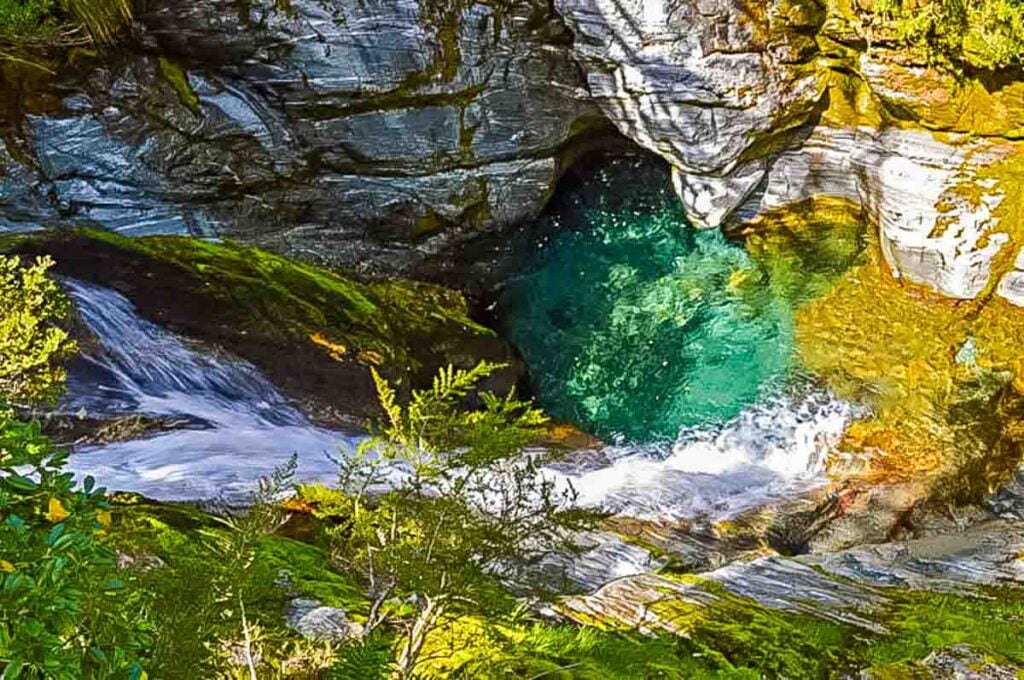
When the sun is out it is very difficult not to keep stopping at the emerald coloured pools of water beneath hidden waterfalls that are beyond imagination from photos. There are so many to see, criss-crossing the river over grand constructed suspension bridges, passing beneath the trees.
Actually this is honestly one of those long trails that nobody thinks of the miles to do in any huff and puff way at all.
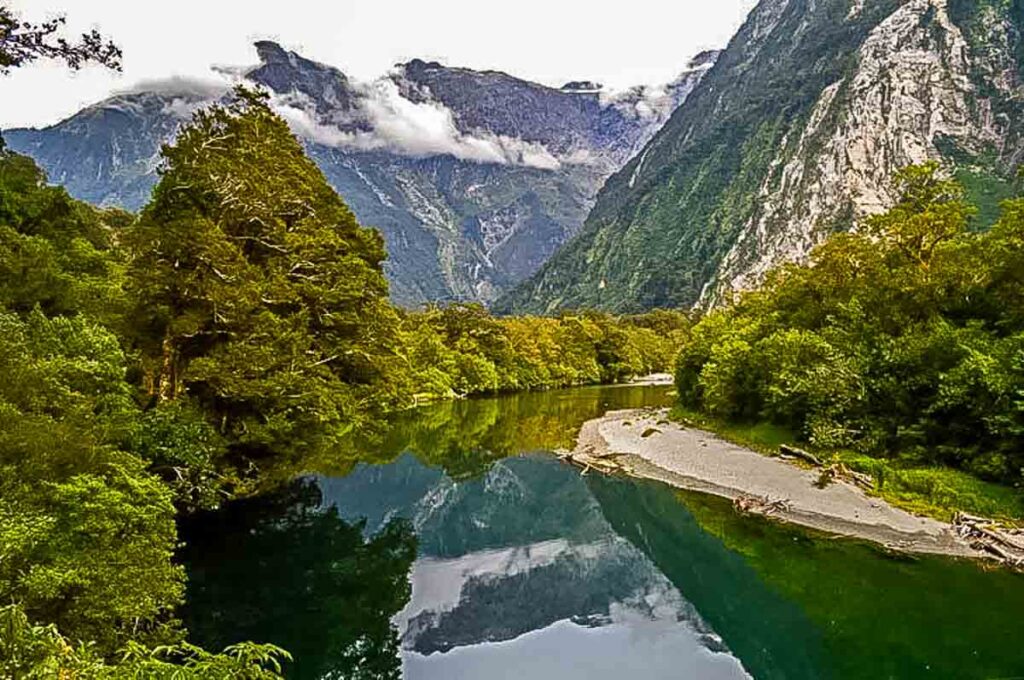
Ahead, the shoreline appears; a much larger body of water: Milford Sound. The end of the track at an aptly named ‘Sandfly Point’. Yes, I will say if you do this walk, take plenty of bug repellant for the route.
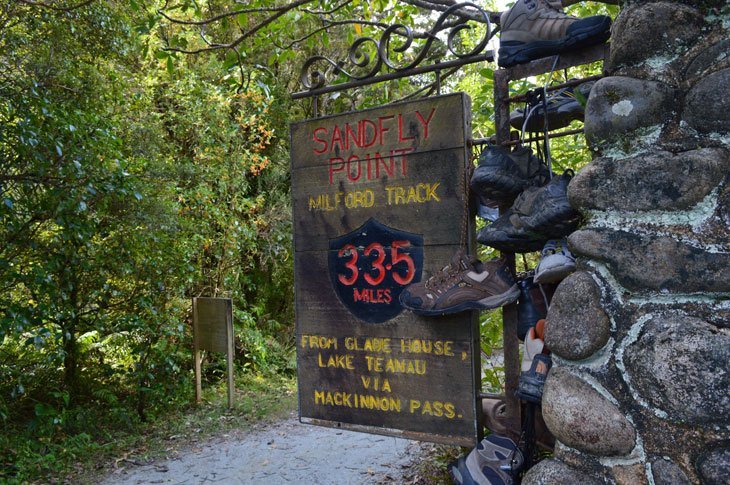
It was over, alas, but the feeling of having walked one the finest walks in the world cannot be taken away. The memories will never fade and moments will always live on in my mind.
A boat ride through Milford Sound is the perfect way to conclude your adventure, providing a unique perspective of this breathtaking landscape.
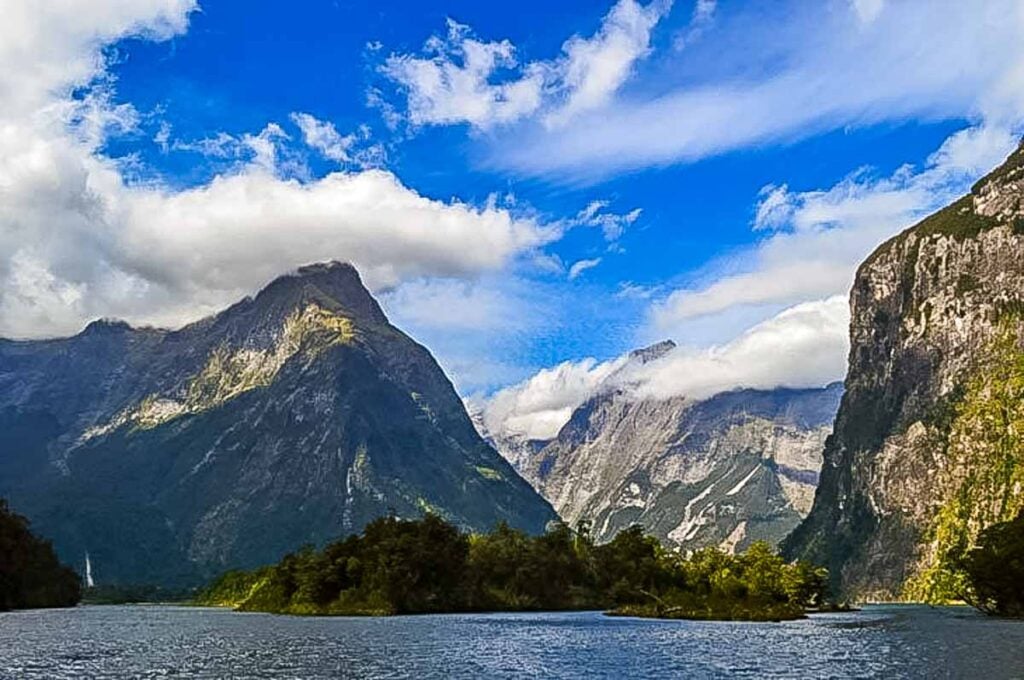
Wildlife and flora on the Milford Track
The Milford Track is not only renowned for its awe-inspiring landscapes but also for its diverse wildlife and flora. As you venture through the track, keep an eye out for native bird species such as the endangered kiwi, the elusive kea, and the melodious tui.
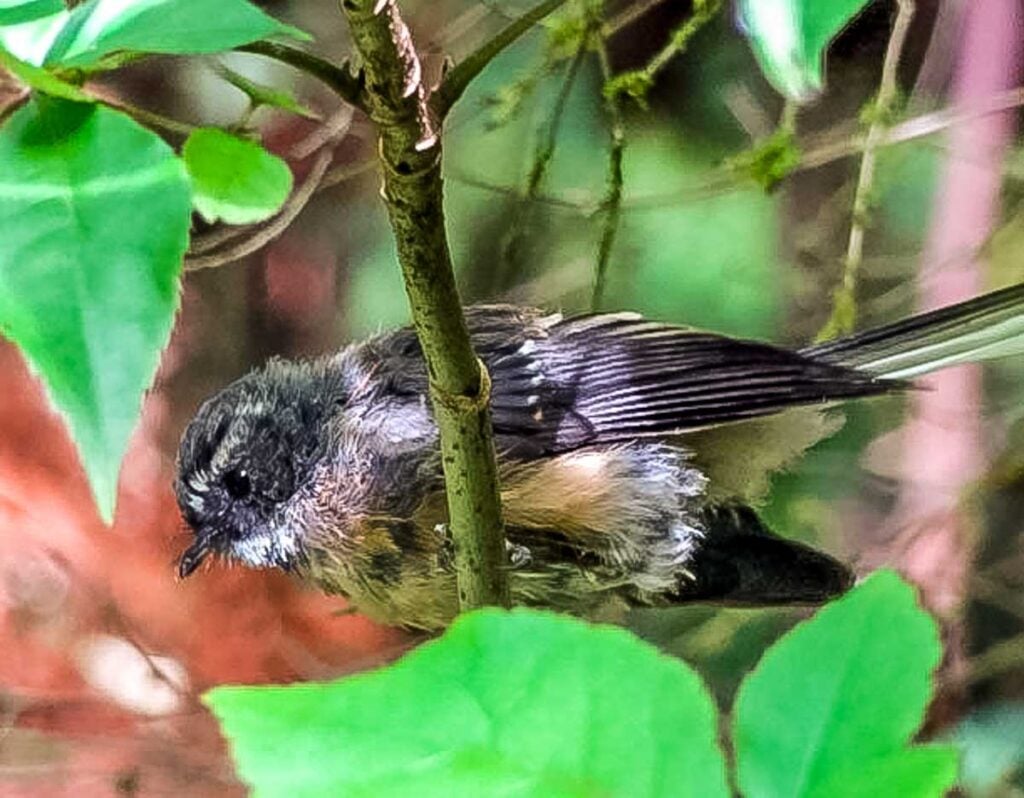
Quite the most common bird I saw here, the Robin. Different to the UK Robin but just as tame. Many seen on the ground or even landing on our equipment/boots, looking for titbits.
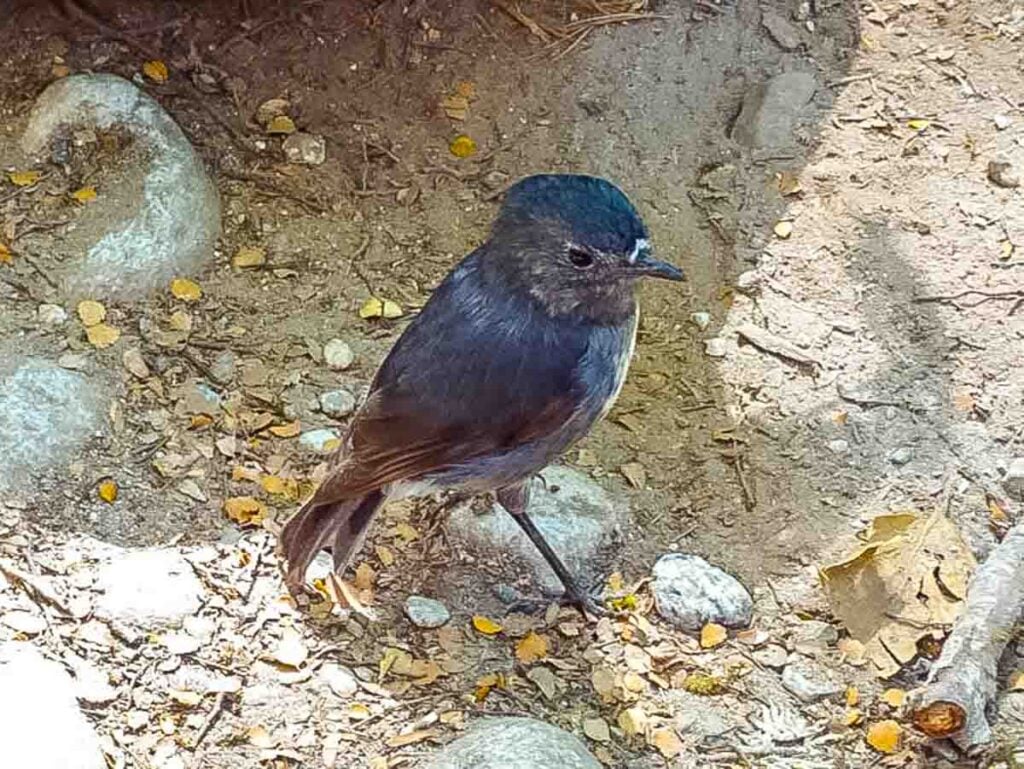
The Blue Duck we saw is an endangered breed. Great amounts of work is being undertaken to keep this unique duck going and growing in number. Due to the ancient isolation of New Zealand this breed has a distant connection with what we consider the duck family.
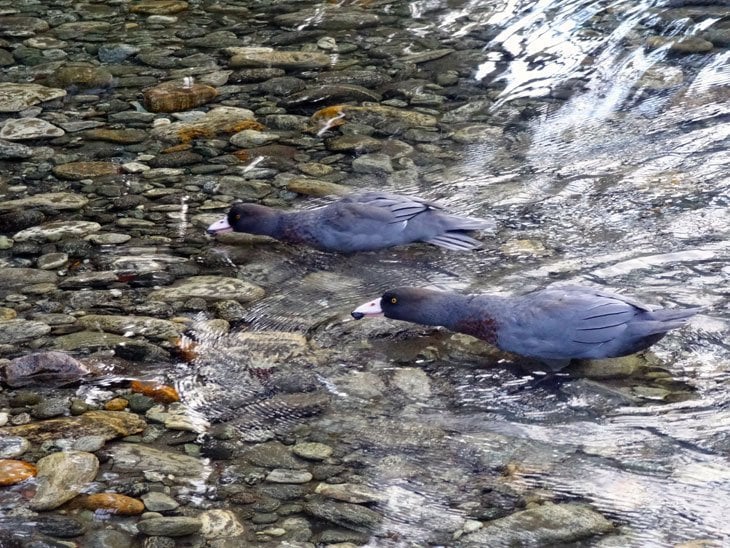
A Rock Wren. I was told by the Ranger that for me to get a sight of this little fellow was a real treat! Normally a very shy creature apparently, it was strange to see not just such a small bird but one that had also evolved with no tail wing!
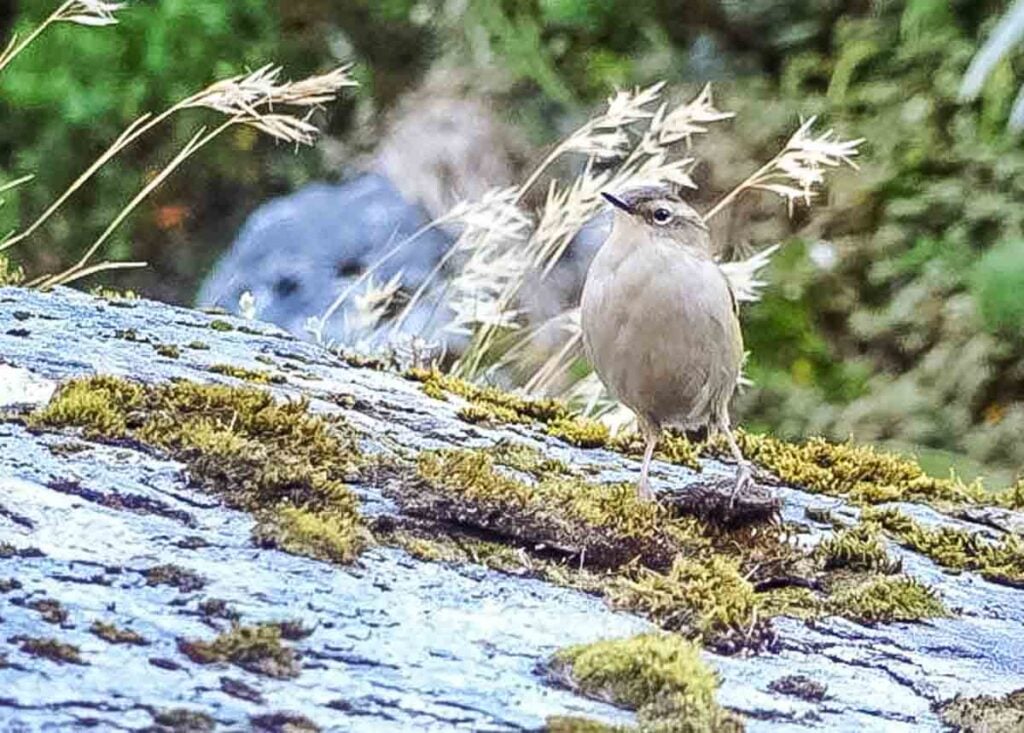
The forests are also home to unique plant species, including ancient beech trees, delicate ferns, and vibrant mosses that add to the magical atmosphere.
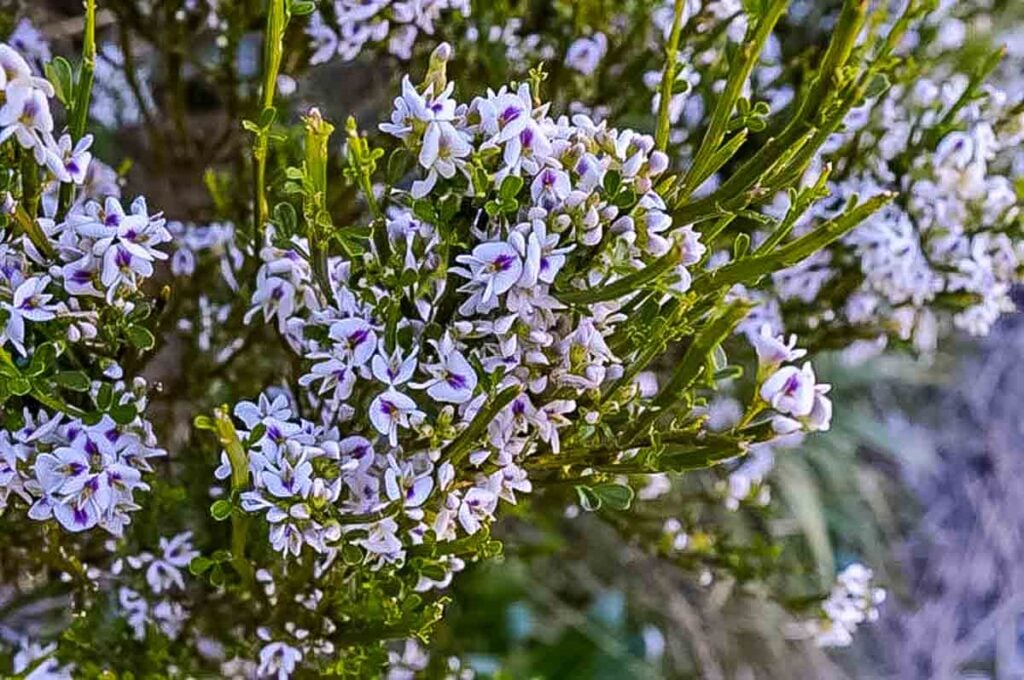
Planning and preparation for the Milford Track
Embarking on the Milford Track requires careful planning and preparation to ensure a safe and enjoyable journey. Before setting foot on the trail, it is vital to obtain the necessary permits and book your accommodation well in advance, as there are limited spots available.
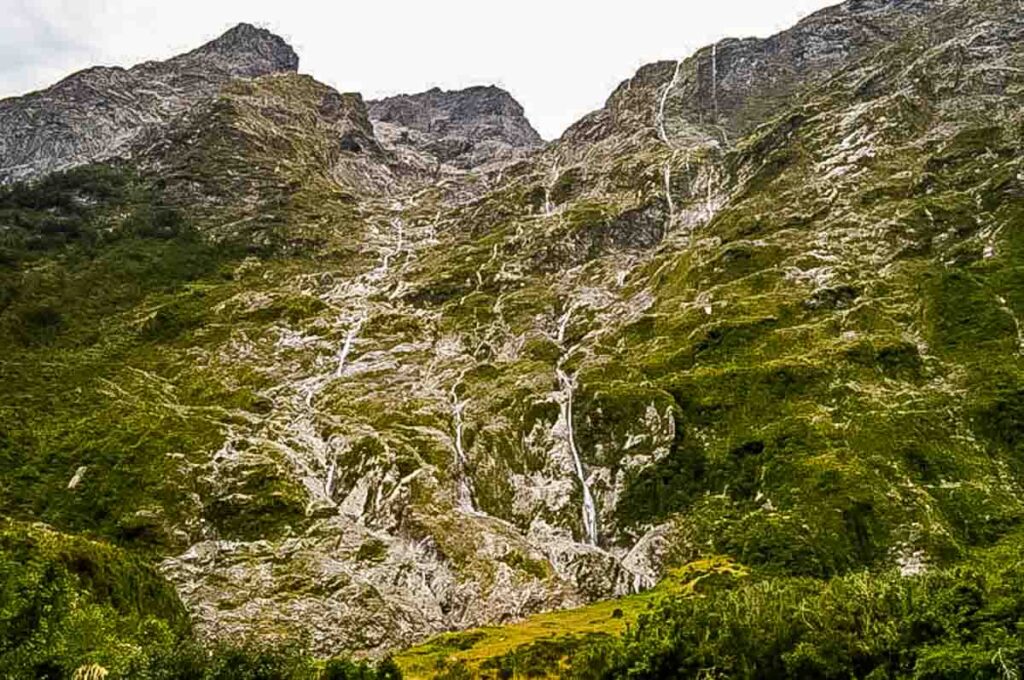
It is also essential to assess your fitness level and undertake appropriate training to prepare for the physical demands of the track. Regular hiking, cardio exercises, and strength training will help build endurance and ensure you can tackle the challenging terrain with ease.
Additionally, familiarize yourself with the weather conditions and pack suitable clothing and gear. The weather in Fiordland National Park can be unpredictable, so it’s crucial to be prepared for all scenarios. Waterproof and breathable clothing, sturdy hiking boots, a reliable backpack, and a good quality tent are essential items to include in your packing list.
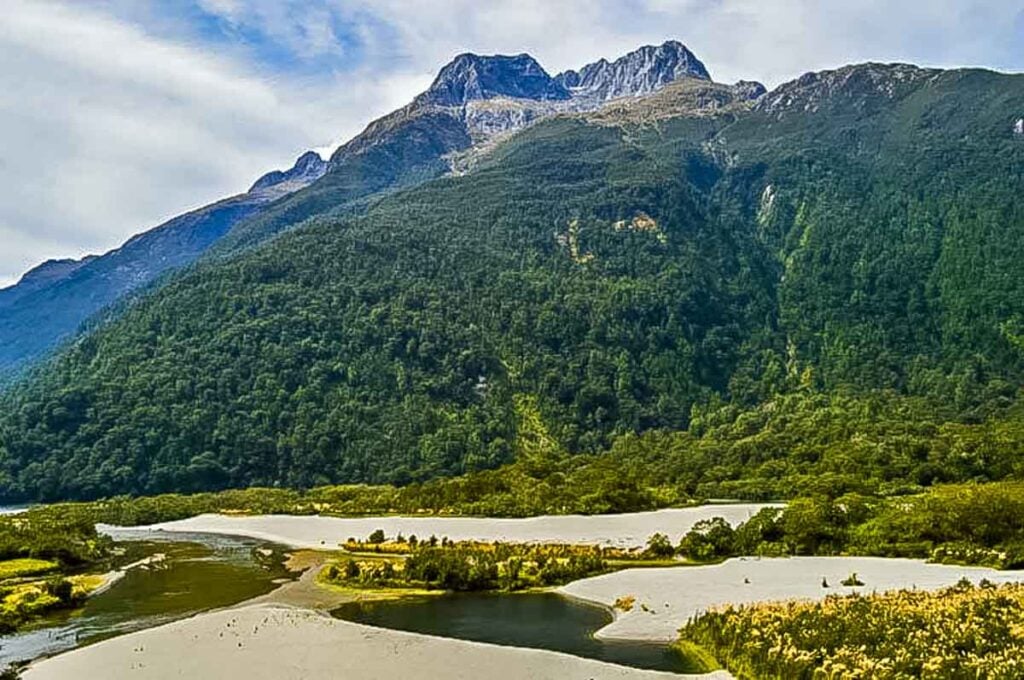
Packing essentials for the Milford Track
When packing for the Milford Track, it’s crucial to strike a balance between carrying essential items and keeping your backpack lightweight. Here are some essentials to consider:
1. Clothing: Layered clothing for changing weather conditions, including waterproof and breathable outerwear, moisture-wicking base layers, and warm insulating layers. Don’t forget to pack a hat, gloves, and extra socks.
2. Footwear: Sturdy hiking boots with ankle support and good traction are essential for navigating the challenging terrain.
4. Food and water: Carry lightweight, high-energy food items such as granola bars, dried fruits, and nuts. Ensure you have enough water or a water purification system to stay hydrated throughout the journey.
5. Navigation and safety equipment: A reliable map, compass, and a first aid kit are essential for navigation and emergencies. A headlamp, a whistle, and a multi-tool can also come in handy.
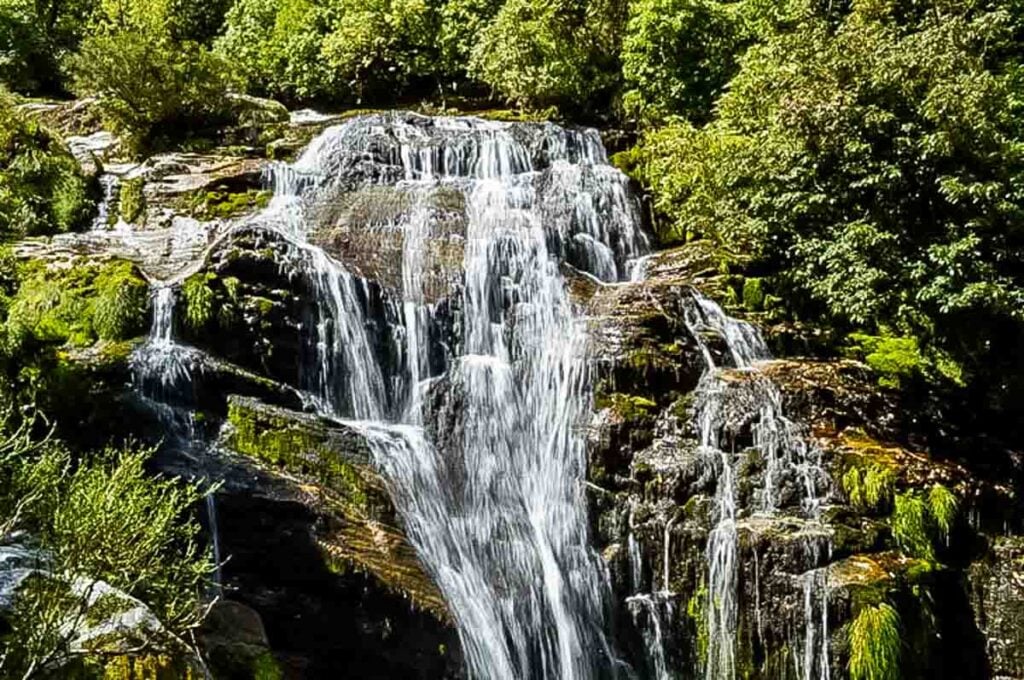
Tips for a successful Milford Track adventure
To make the most of your Milford Track adventure, consider the following tips:
1. Start early: Begin your hiking days early to allow ample time for rest breaks and to enjoy the scenery without rushing.
2. Take your time: The Milford Track is not a race. Take the time to appreciate the beauty around you and soak in the tranquility of the wilderness.
3. Stay hydrated and refuel: Drink plenty of water and eat nutritious meals and snacks to maintain energy levels throughout the journey.
4. Leave no trace: Follow the principles of Leave No Trace ethics by disposing of waste properly and respecting the environment.
5. Embrace the weather: Be prepared for all types of weather and embrace the unique experiences each condition brings.
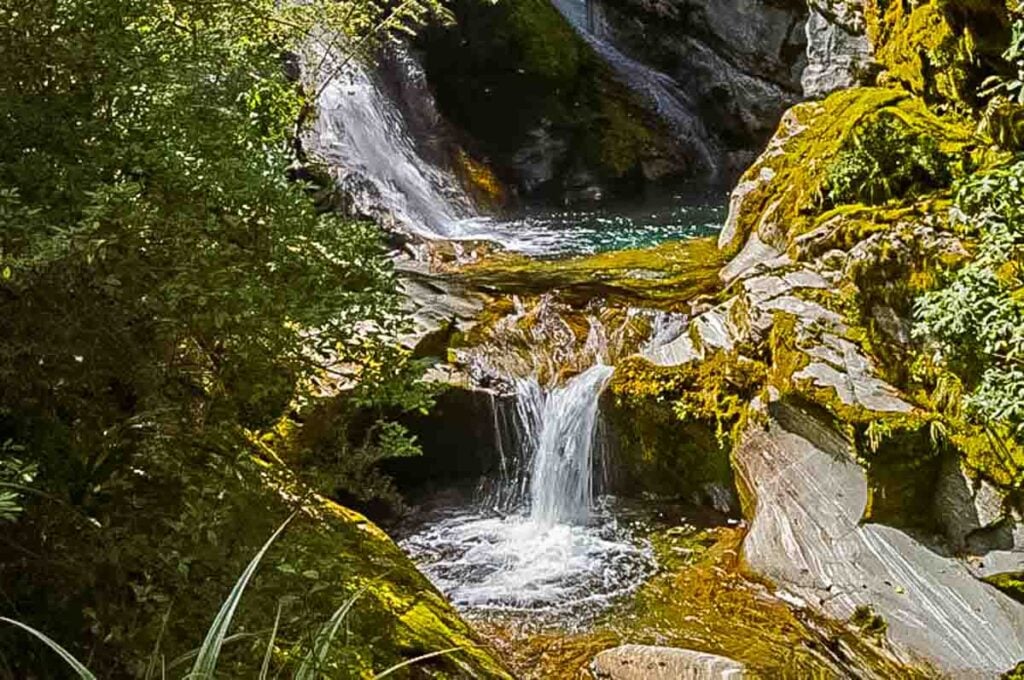
Accommodation options on the Milford Track
The Milford Track offers a range of accommodation options to suit different preferences and budgets. Department of Conservation (DOC) huts are available along the track, providing basic facilities such as bunk beds, cooking areas, and toilets. These huts offer a communal experience and are a popular choice among hikers.
For those seeking a more private and comfortable experience, guided walks and luxury lodges are available. Guided walks provide all-inclusive packages, including accommodation, meals, and knowledgeable guides who will enhance your experience with their expertise. Luxury lodges offer a more indulgent experience, with comfortable rooms, gourmet meals, and stunning views of the surrounding landscapes.
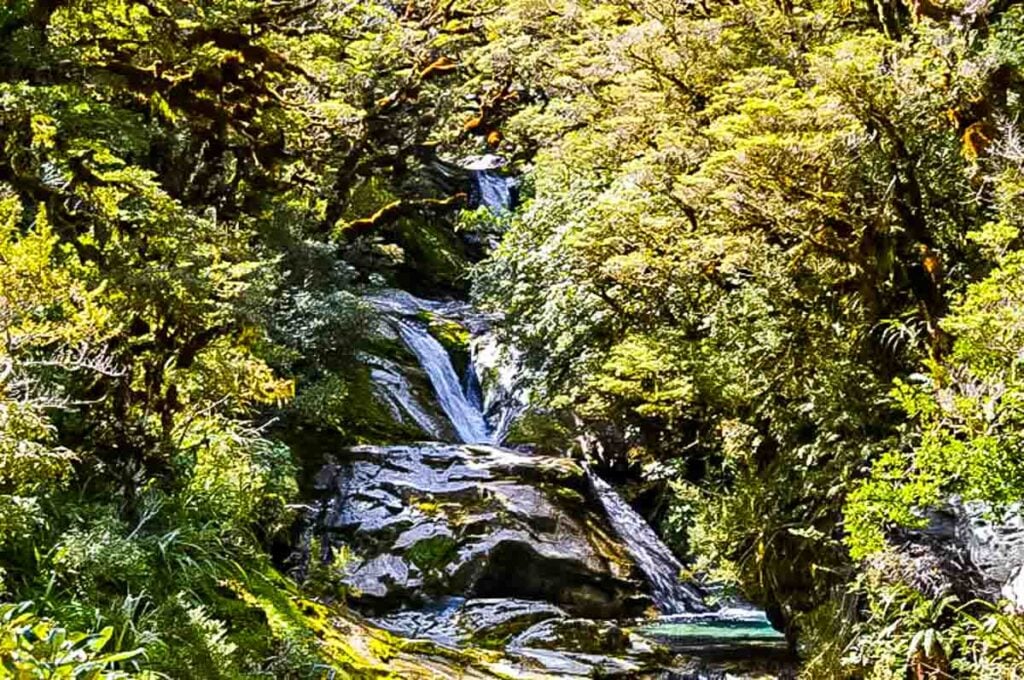
Conclusion: A once-in-a-lifetime experience on the Milford Track
The Milford Track offers a unique opportunity to immerse yourself in the untamed beauty of New Zealand’s wilderness. From its rich history to its breathtaking landscapes, this iconic trail will leave you in awe of the wonders of nature.
As you traverse the Milford Track, you’ll witness pristine lakes, dense forests, towering peaks, and an abundance of wildlife. Each step brings you closer to a deeper connection with the natural world, allowing you to disconnect from the chaos of everyday life.
So, lace up your boots, pack your essentials, and embark on this unforgettable adventure. The Milford Track awaits, ready to take you on a journey through pristine wilderness and breathtaking landscapes. Let this once-in-a-lifetime experience be your gateway to a world where beauty knows no bounds.
I can honestly say this was one of the most memorable treks I have done.

